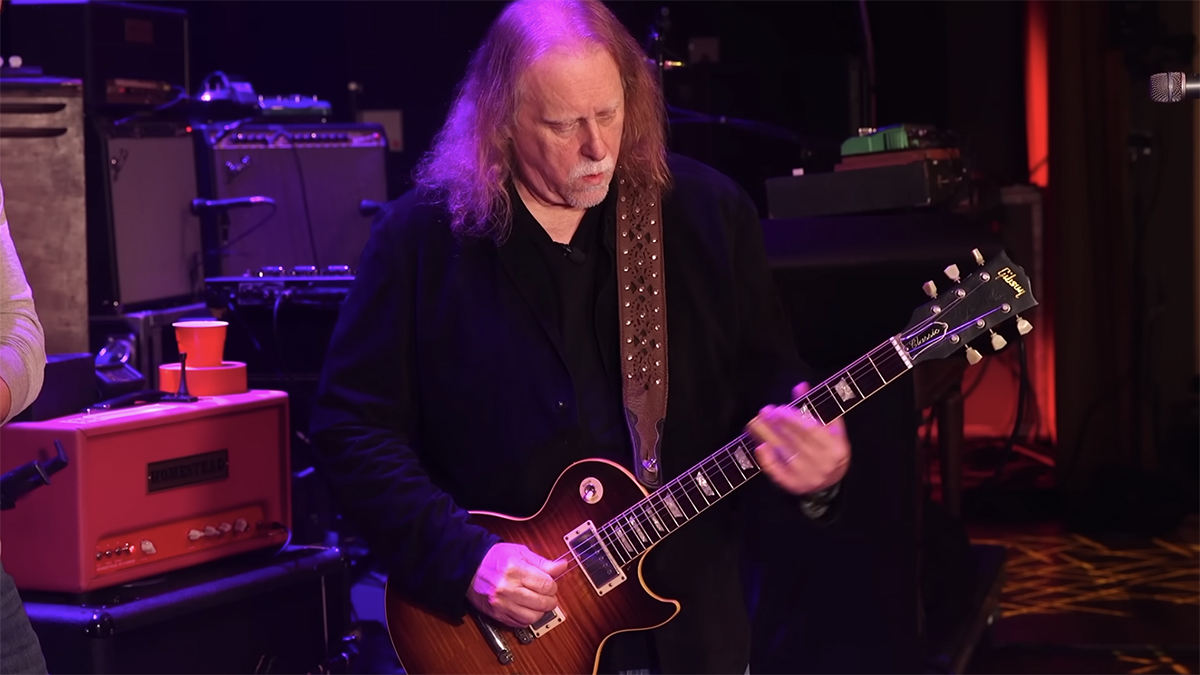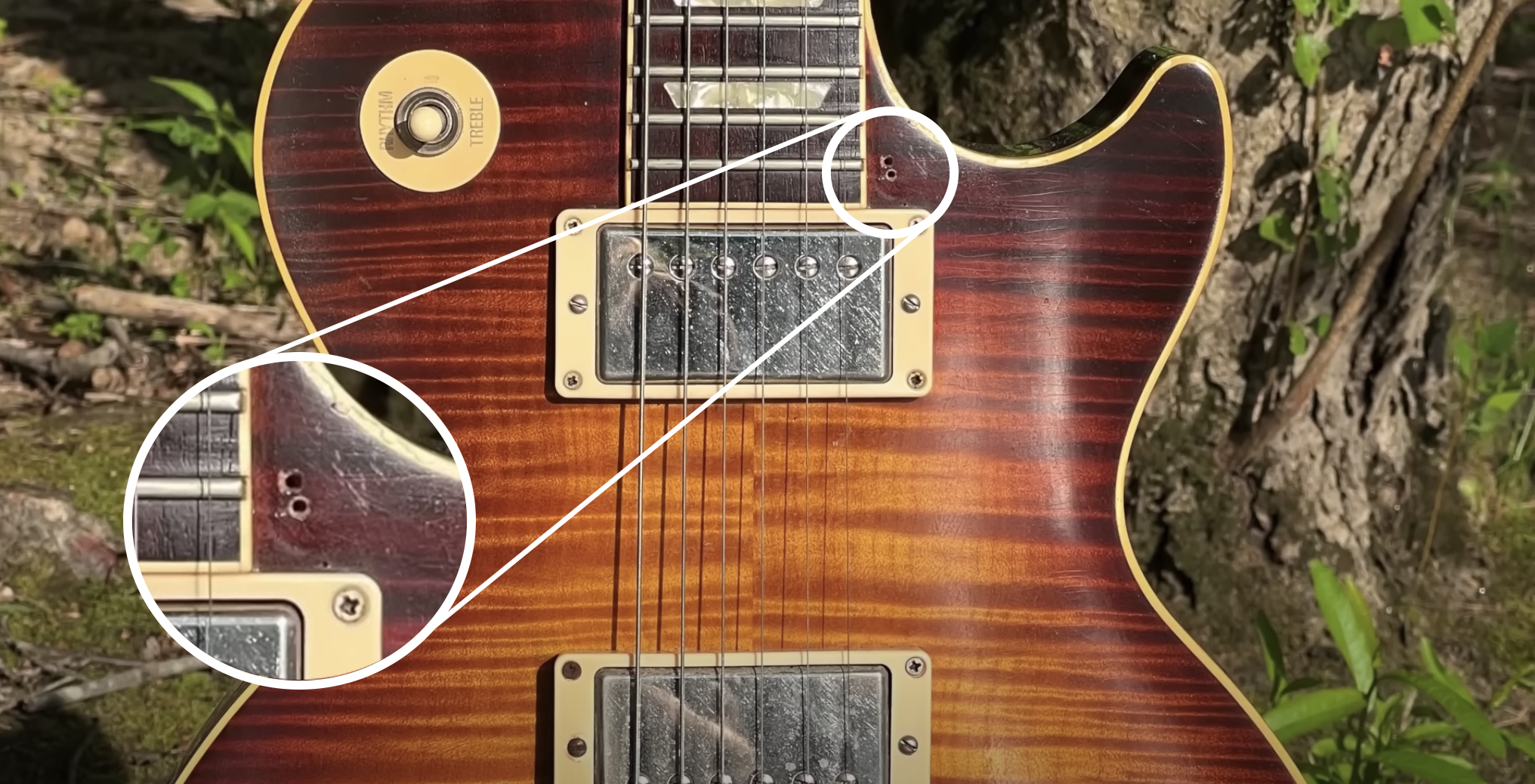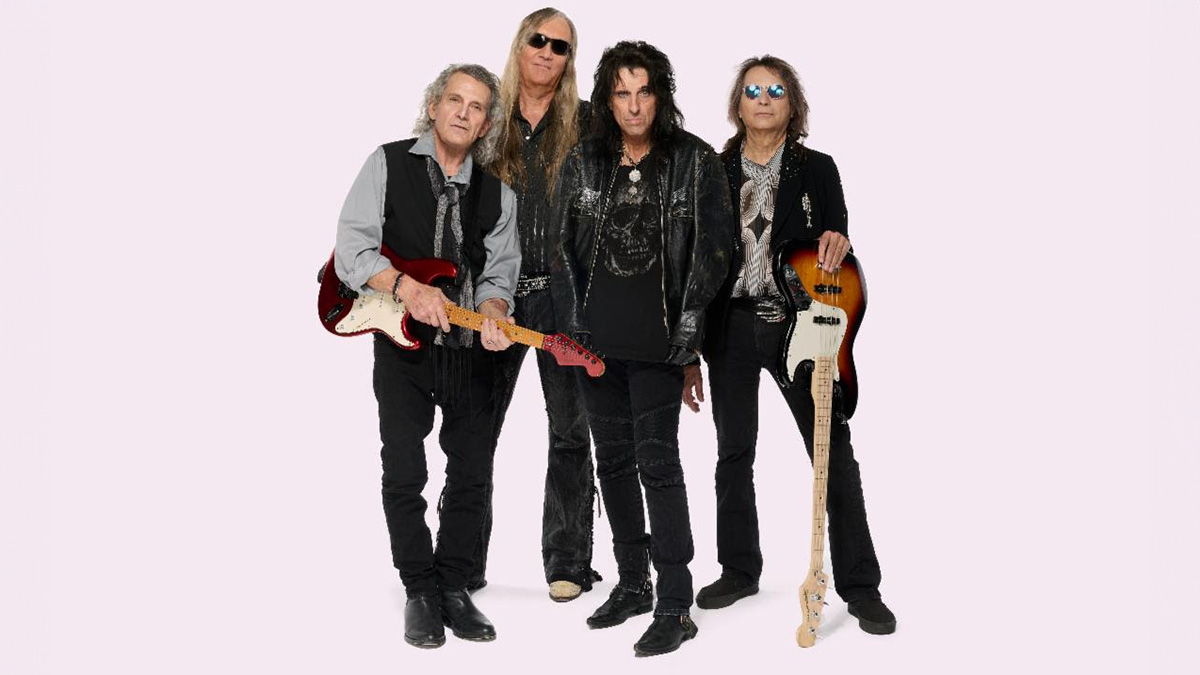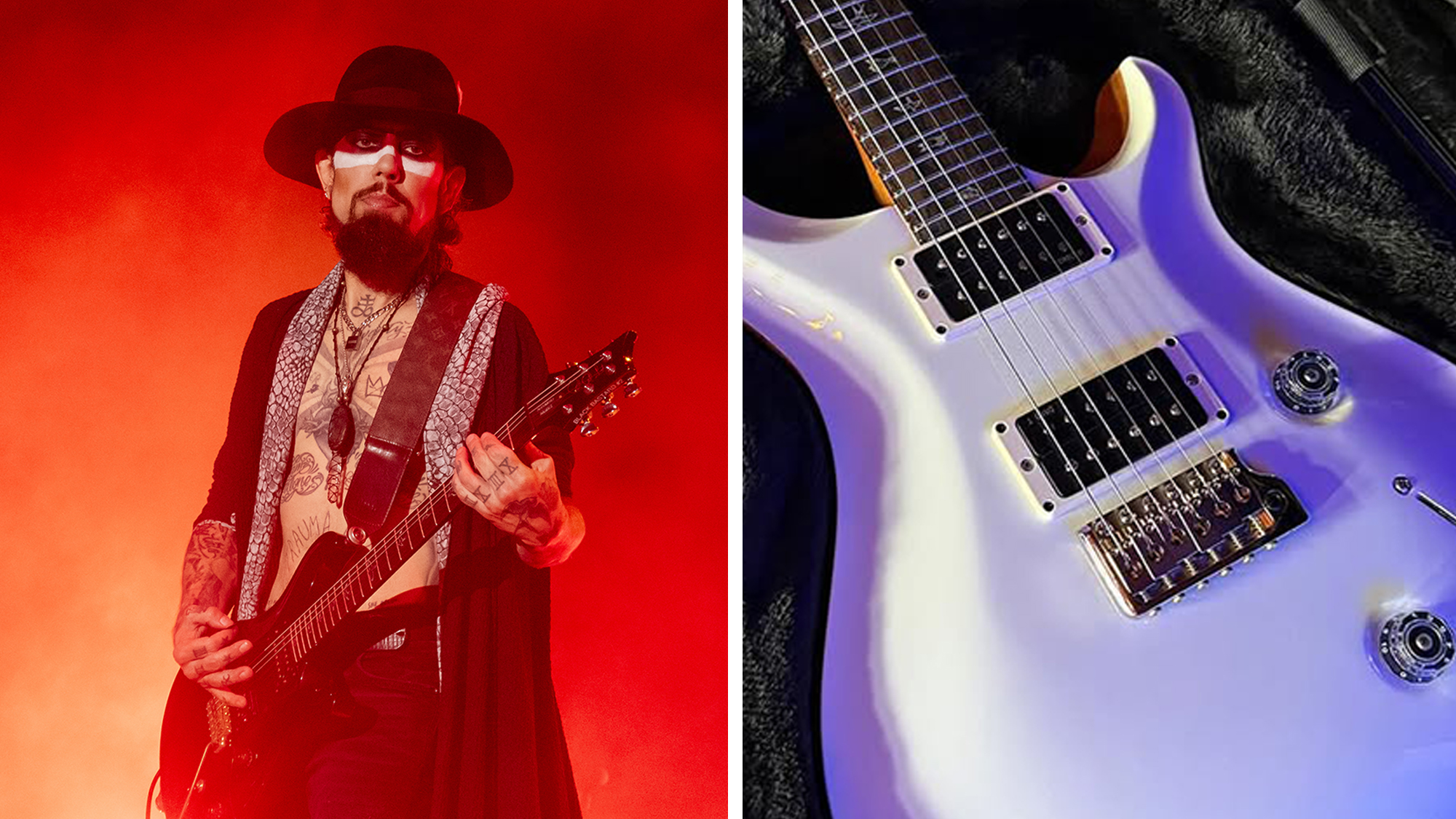
Warren Haynes’ electric guitar allegiances lean heavily in favor of Gibson, with his current Gov’t Mule axe arsenal comprising an ES-335, a couple of Firebirds and a few Les Pauls, just to name a few.
But, as he revealed in a recent interview with Premier Guitar, one of Haynes’ most cherished guitars of the bunch is a Custom Shop Gibson Les Paul – a model that, apparently, isn’t even “legally” allowed to be called a Les Paul at all.
The guitar in question, a Tobacco Sunburst example, was headed for the scrapheap due to manufacturing issues when Haynes, on the hunt for such an instrument, visited the Gibson Custom Shop for a spot of guitar hunting.
As the story goes, the guitar was hanging in the office of Rick Gembar – who formerly ran the Custom Shop – and had been rendered unsellable owing to the fact two extra screwholes had been drilled into the guitar adjacent to the neck humbucker. As such, it was exiled as a piece of wall art.
“Years, years, years ago, I went to the Gibson Custom Shop and said that I was looking for a Tobacco Sunburst Les Paul,” Haynes recalled. “They only had a few at the Custom Shop at that time, and I played three or however many they had.”
Alas, “none of them had that magic” that Haynes was searching for, and so Gembar directed the search towards the forgotten Les Paul hanging from his office wall – a guitar that was then without tuners, pickups or hardware.
“My friend Rick Gembar, who was running the Gibson Custom Shop at that time, said, ‘Well, I want you to get one that you love,’” he went on. “And he just happened to remember this guitar that had been hanging on the wall in his office.
Get The Pick Newsletter
All the latest guitar news, interviews, lessons, reviews, deals and more, direct to your inbox!
“He said, ‘What about that one hanging on my wall?’ And they said, ‘Oh, well, it's flawed, we can't sell it.’ ‘What do you mean?’ ‘Well, there's two extra screw holes in it where somebody put screw holes in the wrong place.’
“So they were just gonna scrap it, so it's been sitting on his wall for like two years or something. It had no tuners, no pickups, no electronics. It was just wood.”

Shortly after, the Les Paul was set up and given to Haynes to try, which in turn swiftly brought about an end to the Allman Brothers Band guitarist's stuttering six-string search.
“We sat around and tried some other guitars, and they brought it out,” he went on. “And it sounded better than any of the guitars that I had been playing. And I was like, ‘Can I have this one?’ And they're like, ‘Yeah, absolutely.’”
According to Haynes, the drill discrepancies meant “legally, they couldn’t call it a Les Paul”, and as such the guitar had been destined for the garbage. Despite its quirks, though, it became his “favorite” guitar from that era.
“For me, for all the guitars that I had from that time period, this is my favorite one. And had that not occurred, this guitar would probably be in the garbage somewhere. I mean, it's a really cool guitar all the way around, but I play slide on it a lot.”

Matt is the GuitarWorld.com News Editor. He has a Masters in the guitar, a degree in history, and has spent the last 16 years playing everything from blues and jazz to indie and pop. When he’s not combining his passion for writing and music during his day job, Matt records for a number of UK-based bands and songwriters as a session musician.
“What blew me away was that everyone wanted the curly maple top. People were calling, saying, ‘I’ve got to have the bird inlays’”: Paul Reed Smith on raising the Standard 24, finally cracking the noise-free guitar and why John Sykes is a tone hero
“It combines unique aesthetics with modern playability and impressive tone, creating a Firebird unlike any I’ve had the pleasure of playing before”: Gibson Firebird Platypus review











